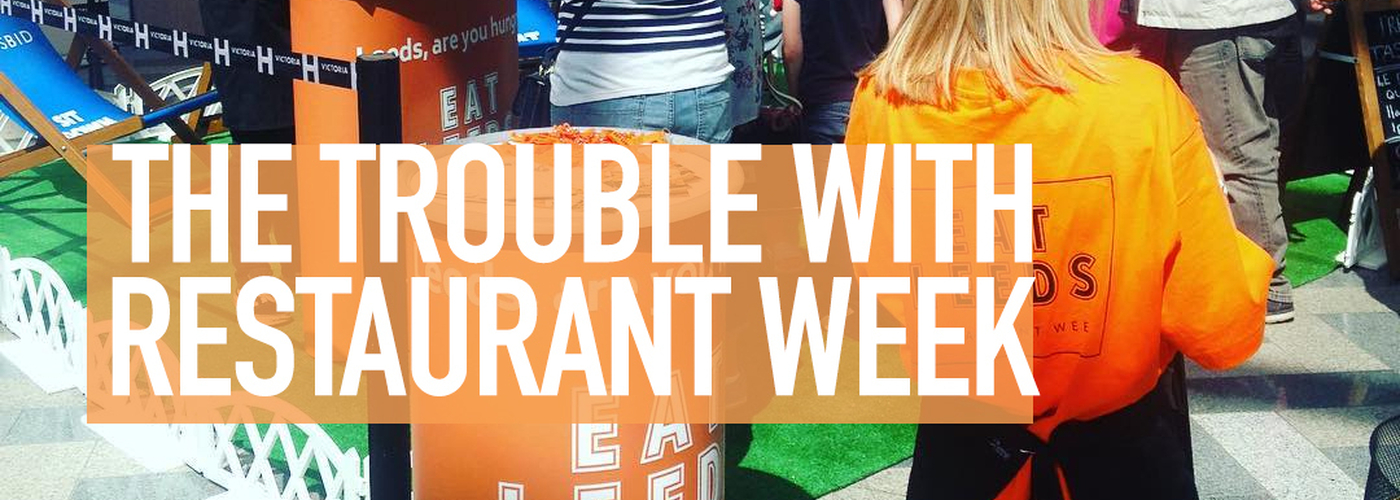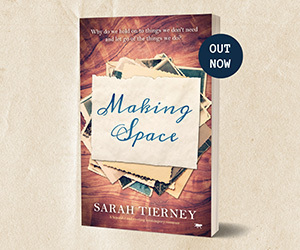How LeedsBID's "Dine for £10" project could cost the city and its businesses in the long run
It’s become an almost weekly occurrence that local headlines are plastered with some accolade declaring Leeds, by some measure or another, officially the greatest city in the known universe. It’s usually as the result of some consultancy or market research agency with a vested interest in the outcomes leaning a certain way, and they almost always come with some qualifier that gets overlooked: “per capita”, or “in relative terms”, meaning it’s not quite the propaganda you see in fascist-state productions like North Korea’s “news” or Trump TV, but it still fairly disingenuous.
Us plebs on the ground, who actually tread the streets of our city know that it takes more than raw data to make living in a city great
Us plebs on the ground, who actually tread the streets of our city, know that it takes more than raw data and percentage rises written green text on spreadsheets to make experience of a city great. It’s the little things. The first face you see as you get into town being a friendly one; having a decent restaurant as your go-to that doesn’t exist anywhere else; the fact that there's enough going on each weekend that you've always got an excuse for not visiting your mates who moved to London.
In the past few years, a lot of these little things have been facilitated by LeedsBID.
Not to be confused with the Leeds 2023 bid for European Capital of Culture, Leeds Business Improvement District aims to “raise standards, raise awareness and add value by doing more things better for the benefit of all the businesses in the BID area.” by charging participating businesses a levy based on a percentage of their business rates, and investing it into art, culture, sport, and hospitality projects that “make the city a trailblazer for innovation in its welcome, environment, opportunity, diversity and range.”
The UK's tallest mural by @nomad.clan is now complete ✅🙌Great to be able to deliver this for #Leeds with @east_street_arts and @bruntwood
A post shared by LeedsBID (@leedsbid) on
Recently that’s included helping fund Leeds International Festival, last year’s Christmas In Leeds art trail, and most recently, the UK’s tallest piece of street art - the breathtaking mural on the side of Platform building, greeting arrivals into Leeds Station. They are, without a doubt, a force for good in our city. One of the good guys.
With that in mind, the new LeedsBID-funded organisation, Eat Leeds, feels like a rare error in judgement.
Taking place this August, Eat Leeds Restaurant Week “will help to raise the profile of Leeds as one of the UK’s top food and drink destinations.” according to LeedsBID Chief Exec Andrew Cooper. It'll do this by offering 2 or 3 course set menus at either £10 or £15.
Well of course! It’s so obvious! The key to raising Leeds’ profile as a top food and drink destination isn’t supporting and amplifying the efforts of grassroots business, organisations, and individuals who toil away out of passion for their city and industry - you just have to offer 2 courses for £15 at Las Iguanas! The directors of Leeds Indie Food (which, in fairness, also receives funding from LeedsBID) must be kicking themselves for not thinking of that!
One of Andrew and The Welcome Ambassadors @eat.leeds launch yesterday #EatLeeds
A post shared by LeedsBID (@leedsbid) on
As well as Las Iguanas, the majority of the restaurants involved reads like a who’s-who of any town within a few miles of a major motorway junction: All Bar One, Barburrito, Jamie’s Italian, Byron etc.
Don’t get me wrong, I’m not anti-chain (just check my Monzo statement...Actually, don’t). I’d happily hedge my bets on any of these places if I found myself hungry in an unfamiliar city, but which of them are integral to Leeds' food community? Are any of them responsible for the fact that, in the words of Andrew Cooper, “the food and drink industry in Leeds is rapidly evolving into one of the city’s most innovative and respected sectors”?
Ignoring the questionable effectiveness of limited offers as a promotional method (discounts generally result in customers undervaluing the product or service, and don’t lead to consumer loyalty after the offer’s finished), restaurants who haven’t chosen to participate for whatever reason can expect this artificial surge of competition to manifest itself in the form of empty tables and empty tills, during a time of year already particularly difficult for small businesses.
Venues that either can’t afford to run loss-leading offers, can’t afford to pay the levy to LeedsBID, or simply aren’t valuable enough to be considered eligible to join (the entry level is a rateable value of £60,000 or more) will suffer, as the ones who can afford to take a hit will prosper. As pointed out in Norse owner Paul Rawlinson’s excellent series of articles about Harrogate’s restaurant scene last week, large restaurants can afford to be empty during quiet periods, buoyed by the scale of their operation during busy times, a privilege that most small businesses aren’t afforded.
Our phenomenal value Fixed Price menu is available all evening! 3 courses for less than £20, and an amazing wine selection to choose from.
A post shared by shearsyard (@shearsyard) on
Admittedly, not all of the restaurants taking part are faceless chains with financial-quarters' worth of cushioning. Bundobust, Cielo Blanco, Pinche Pinche, Shears Yard, Cat’s Pyjamas, and Cantina are just some of the (great) local upstarts taking part in the event. These are the kinds of venues that actually do contribute to Leeds’ status as one of the UK’s top food and drink destinations, and are lucky enough to find themselves in a comfortable enough position to be able to absorb a week's worth of lower takings, whether that's as an attempt to use Restaurant Week as a platform, or as a way of levelling the playing field against the bigger organisations.
Fingers crossed Restaurant Week sends swathes of new customers to them; customers who go on to become loyal regulars that value what they do at their regular price and help them and Leeds food and drink scene continue to evolve and innovate. And if not? £10 for two courses doesn't seem like such a bargain when the hidden cost is our city's unique food & drink identity.




